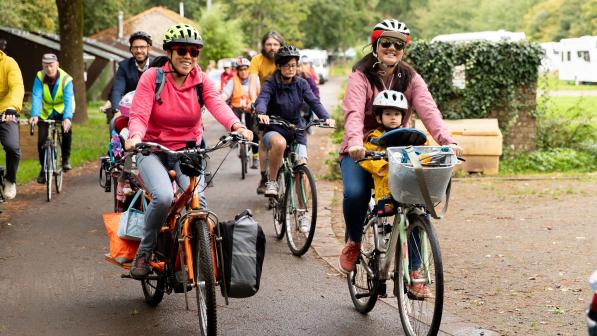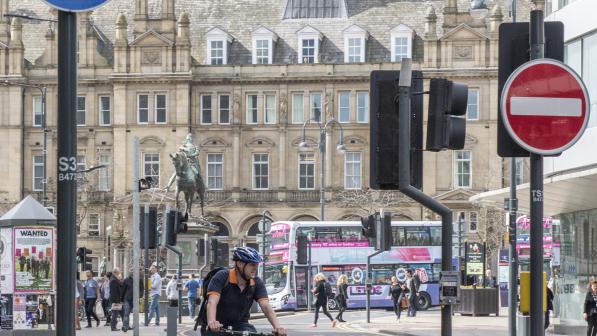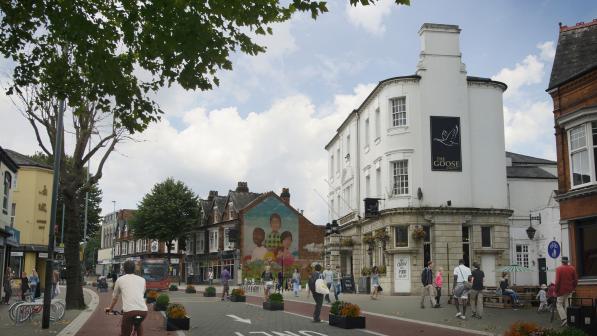The Paris Olympics and the growth in cycling infrastructure

Olympic changes
This years Paris Olympics could be revolutionary, as the city showcases its progress in making cycling much safer and more accessible for all.
Under the leadership of Paris Mayor Anne Hidalgo, around 60km of cycle lanes have been built over the last two years to link all the Olympic event spaces across the city and surrounding region.
These routes, dubbed olympistes, are strikingly painted pink and green, and a handy map, shown below, has been drawn up to help the 10 million Olympic visitors get from one venue to another between events.
Preparations for the hosting the games have also included the provision of 10,000 additional temporary bike parking spaces at competition venues and 3,000 new Vélib hire bikes.

Temporary luxury, or here to stay?
Anne Hidalgo has heralded the project as a ‘grand celebration of cycling and a catalyst for ecological transition’ – suggesting that they are not a temporary luxury that will be torn down the second the fire goes out during the closing ceremony, but a permanent reallocation of road space towards cycling and away from motor vehicles.
Indeed, these changes are part of a longer term strategy to turn Paris into a 100% cyclable city.
As part of the 2021 – 2026 Bike Plan to tackle congestion and make Paris a green, sustainable city, an additional 180 kilometres (112 miles) of permanent protected bike lanes, 52km of which were, until now, temporary cycle lanes put in place during the pandemic.
The number of parking spaces for bikes, including cargo bikes and adapted trikes, will triple to 180,000, made possible by removing 70,000 car parking spaces across the city.
What’s more, the plan will be delivered with only 250 million euros of funding – a miniscule amount compared to the £27.4 billion allocated for road investment in the UK.
This isn’t to suggest that Paris is a cycling utopia (even if it is well on its way). Not every road in the city has cycle lanes, and not all cycle lanes that do exist are protected with physical barriers - many cycle lanes are simply painted on, which you’ll be very familiar with if you’ve cycled in any UK city.
Ultimately, for Paris to deliver the changes necessary, the city must come to terms with the fact that congestion, air pollution and road danger are caused by too many motor vehicles, carrying one or two people, taking up too much road space.
By reallocating their roads more efficiently by giving space to cyclists, Paris is on the hunt for the gold medal - delivering a a safer, more sustainable, people-friendly space for everyone.
Since 2019, daily bike trips have more than doubled, showing that where good quality cycle infrastructure is built, children, families and people of all backgrounds use it in droves.
This isn’t unique to Paris - over a million cycling trips have been recorded along Oxford Road, Manchester, since protected cycle lanes were installed in 2022.

Change only happens when we fight for it
The transformation of Paris’s streets didn’t come out of thin air, nor did they happen overnight.
Charities like Collectif Vélo Île-de-France, a conglomeration of campaigners, including Paris en Selle, have been pressing local authorities for years, staging a mock torch relay by bike in 2022 to call for the delivery of a safe, protected cycling network in time for the Olympics.
As Paris mayor Ann Hidalgo said herself – “the cycling charities push us when we are too slow, and they are right to do so”
Want to see your local council deliver safe, high-quality infrastructure that matches Paris Olympic ambitions? It will only happen if we come together and put pressure on our decision makers to step up and deliver safer streets for all.


